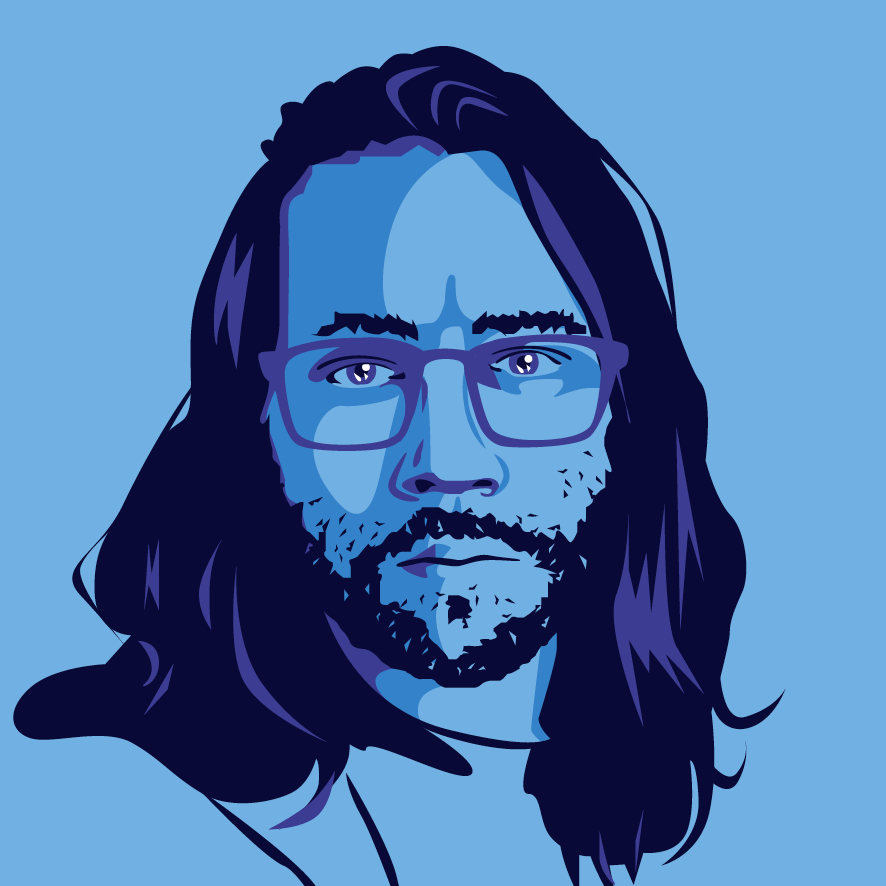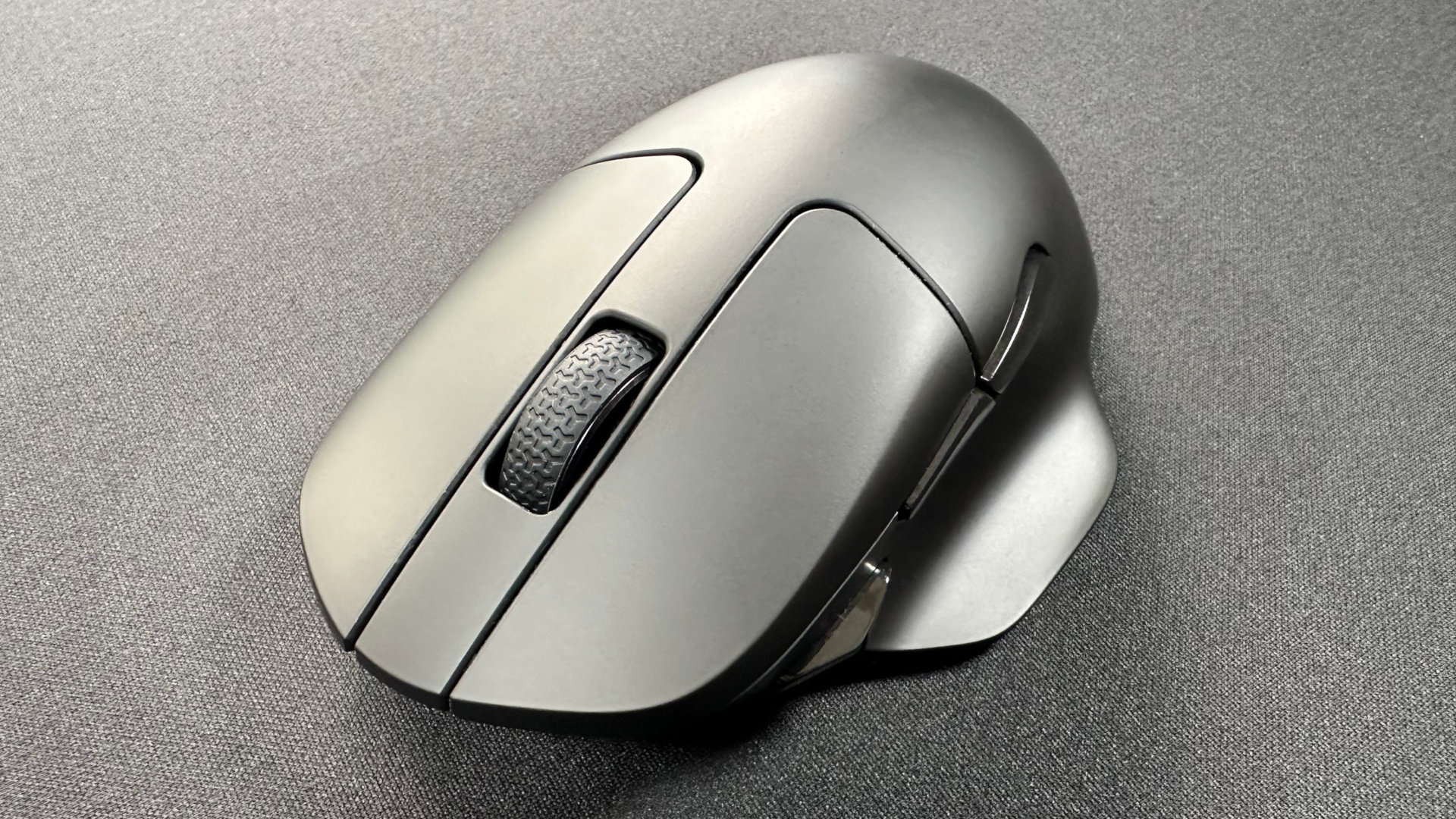Call of Duty: WWII's best mission feels like it's from another series
Like series-best All Ghillied Up, WWII's best mission succeeds because it requires patience.
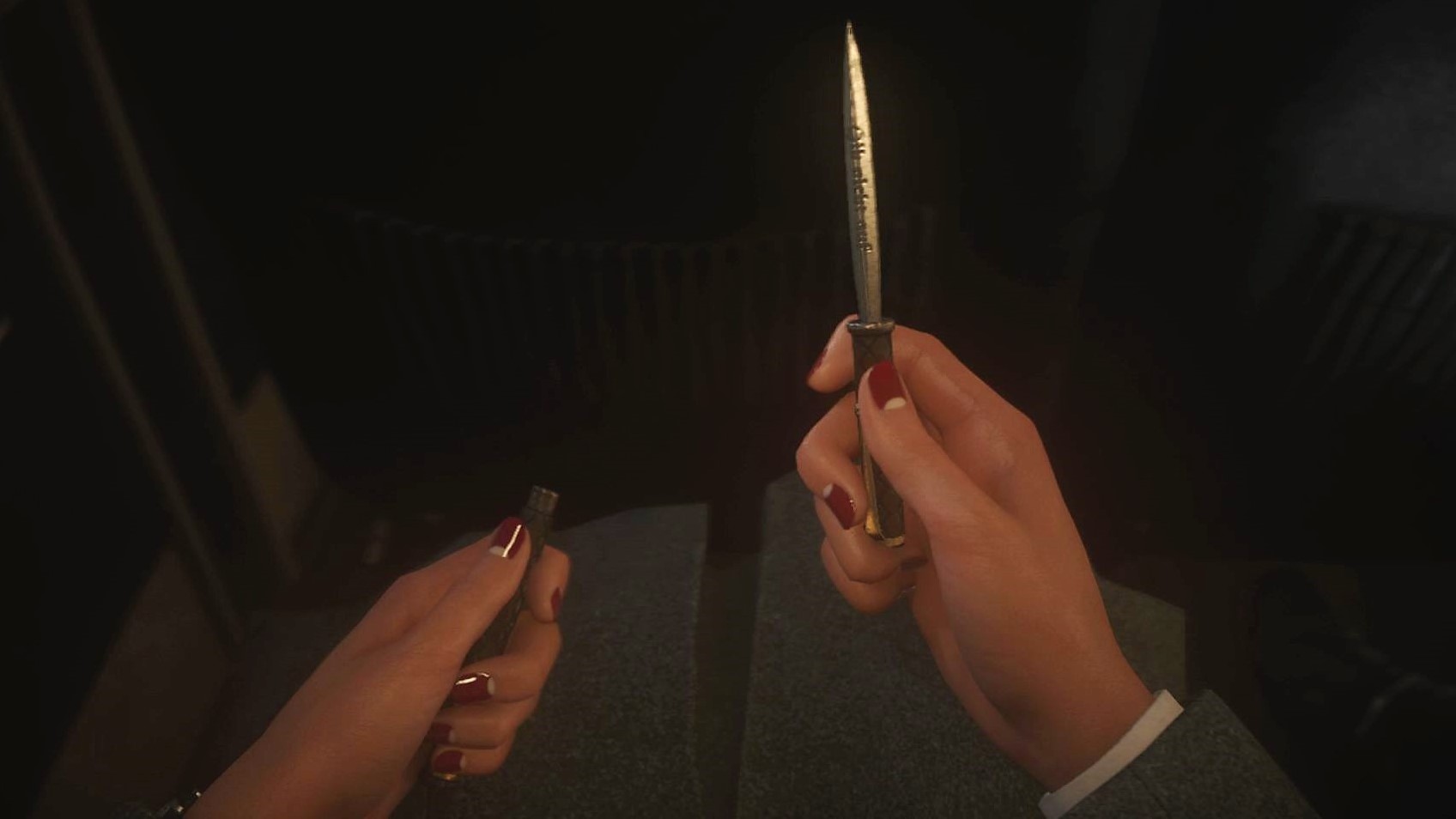
It starts out like any other Call of Duty. A man is talking at me in a car. We pass by more men with guns (Nazis) shoving someone around while a brassy ensemble plays some low menacing notes to underline their low moral position. My character looks down and a hand with painted nails twists the cap on a blade made to look like a pen. Huh.
I don't see Daniels' apeish hands or hear his southern drawl. Instead a woman says, "Soon this nightmare will be over." I realize I'm playing as Rousseau, a French spy about to go undercover and covertly stab some evil bastards with a pen knife. This is Liberation, Call of Duty: WWII's best mission by a mile. It's also the one that plays the least like Call of Duty.
But Liberation isn't a great level just because it diverges from Call of Duty's usual shooting galleries. Those can be fun too. It's memorable because it strips you of your superhuman power to tear down entire armies and asks you to slow down, think, and observe. For such a breathless series, it's pacing whiplash. Liberation proves Call of Duty missions can layer on interesting ideas without stripping out fast-paced action or halting completely to teach players complex new systems.
Also, playing a spy is just cool. But let's take this step by step.
First off, major spoiler warning. We're walking through the entire mission.
Bathrooms and basements
Before entering the Nazi stronghold in Paris, you're given a fake identity and story to stick to. I figure Call of Duty will do the heavy lifting here and carry me through, but your in-game life ends up hinging on memorizing your cover story. Press a button to take out your papers and specific fields light up. You need to know your name, where you're from, why you're there, and who you're there for. For the last three hours of play I haven't exactly exercised critical thinking skills, so I start to panic. The last time I had to memorize terms out of the blue was for a Spanish exam, which didn't go well. I feel dread.
But my worries subside a bit when I head inside. The compound is a beautiful building, unfortunately full of Nazis at work. Some idle in corners chatting with one another. Others smoke and stare. The face of my enemy is a really unexciting face. Evil comes with paperwork.
Keep up to date with the most important stories and the best deals, as picked by the PC Gamer team.
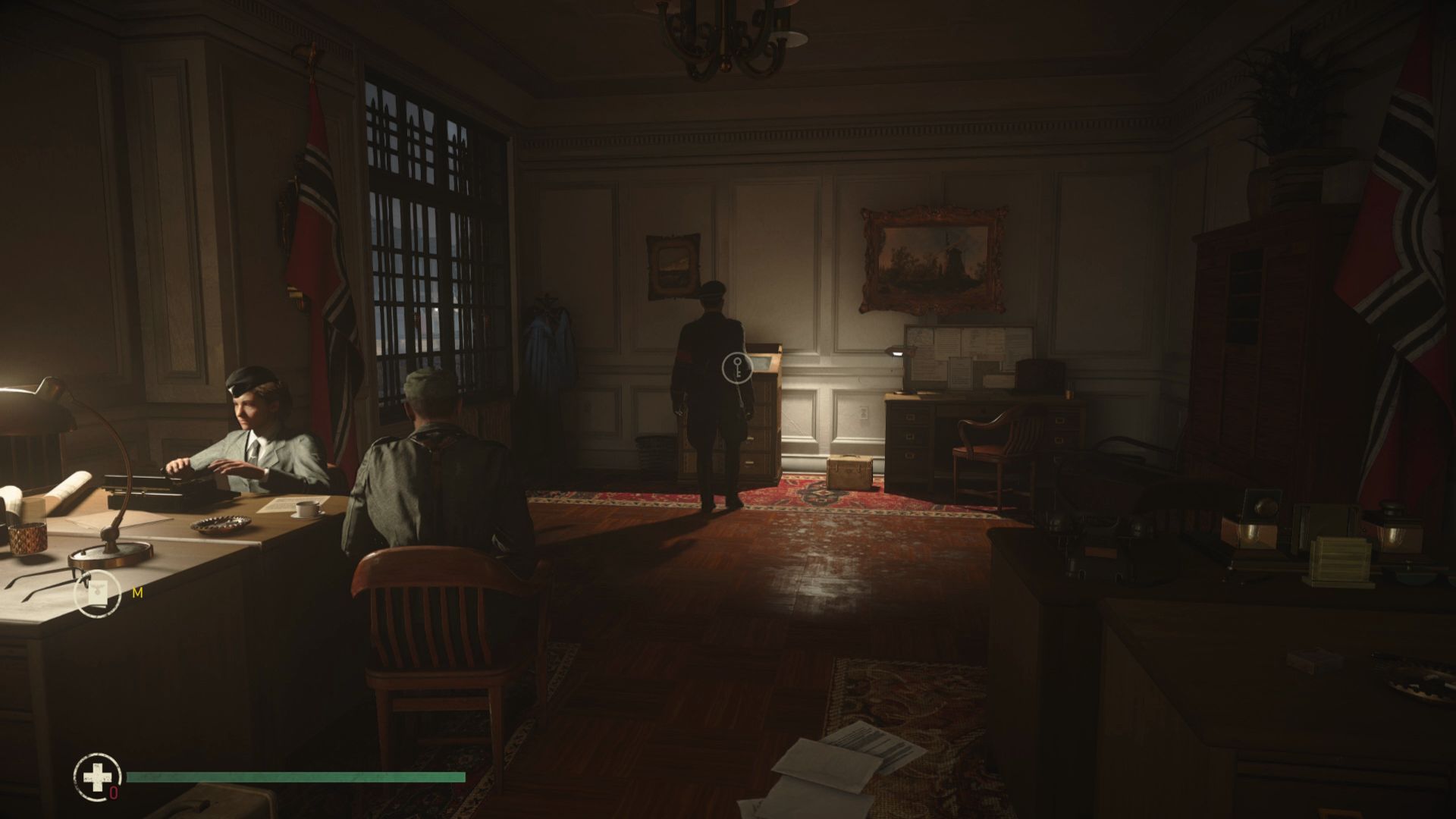
My goal is to find my contact Oberst Fischer and pick up some explosives from him, which I'll then plant on reinforced gates leading into the compound, making a clean path for the men with guns to roll in on. I'm told he's dressed as an officer in grey uniform. Problem is, there are a lot of officers in grey spread throughout the building, and I can talk to them all. I'm also going to meet with Herr Heinrich, an officer that Rousseau holds personally responsible for the death of her family. Revenge time.
But before I get to all that, I obviously need to check out the bathroom. Most important of all videogame environment props is the toilet, and while it's not a fully functional bathroom, Liberation at least has one. It doesn't need to be there, but it is. It took multiple people to design and model and place a toilet that most players will only glance at. When developers are able to create detailed levels that aren't overtly designed to catapult you forward, games stop being amusement park rides and become believable spaces. Toilets: that important.
When I finally talk to someone, I get the prompt to ask if they're the man I'm looking for, initiate the code phrase with a question about a French poet, or apologize and leave. I'm not sure where to begin, so observe a man smoking a cigar in a dark corner of the building. The scene looks like something right out of an old photograph I might flip through in a textbook. I talk to a few grey dudes and ask where Fischer is. Eventually, one tells me he's probably in the basement, a place someone like myself doesn't have access to.
There's a soldier standing guard over the door who tells me to get lost. He wanders off to look at papers on a pedestal, and I follow him from a few yards off. My instincts were right. I see a prompt on his ass and hold a button to steal the key with his back turned. I get the impression he is a very stupid person, and with that in mind, I open the door to the basement and head down.
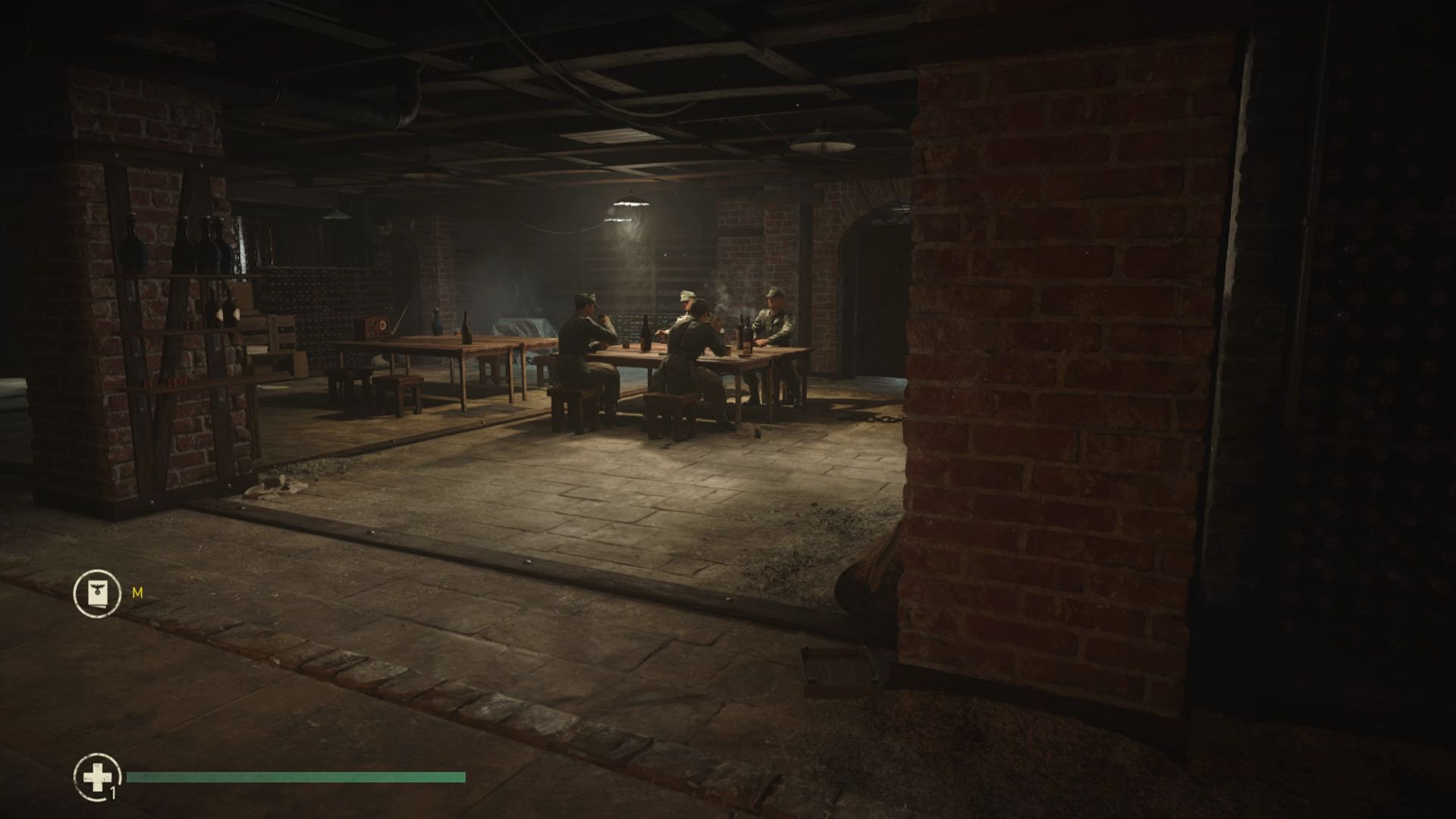
I don't think there are other ways into the basement, but that's OK. Like a Telltale game lets you color your character with dialogue choices without truly altering the course of how things play out, Liberation gives you enough space to at least give the impression that there are other routes downstairs. Even if the only way into the basement is with the key, the solution requires observation and navigation skills, which makes me feel clever. And if a game can make me feel clever, then it's already achieved a monumental task.
No one is terribly surprised to see me downstairs. Some men sit at a table smoking and playing cards. A grey guard leans on the wall nearby, and I figure he's the man I'm looking for, basement-based and all, so I open with the code phrase. He talks some shit about French poetry and asks for my papers. Oops. I stopped thinking about my cover awhile ago. Luckily, he only wants to know my name, which I do somehow remember and skirt through his suspicions, asking where Fischer might be now. I should've studied harder.
He's upstairs. Third floor, also off limits.
First contact
Luckily, the elevator is open down here, and I can take it to the third floor. But I explore the basement a bit more before moving up. A jailed man sits in his cell while a nearby guard dozes off. A prompt implies I can free him, but I don't. Not worth it. Can't blow my cover. I don't know if he'll get out alright, but if everything goes to plan, he'll be free soon anyway. Still, it pains me a bit. In reality, I'd probably have to restart at a checkpoint a few minutes back and try again, but I'm not about to break cover or character.
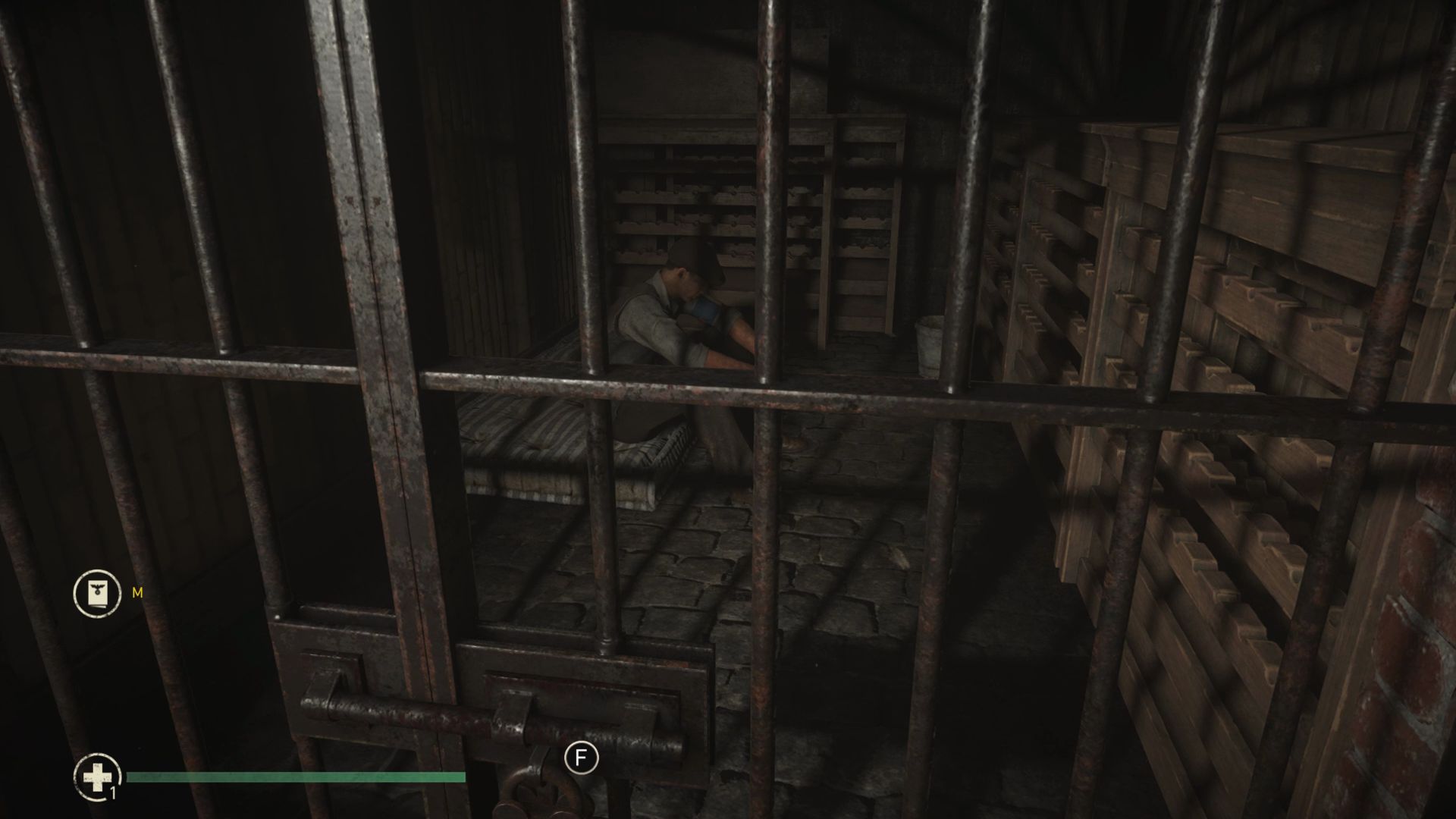
I head up the elevator and find my man. I utter the code phrase, he responds with his half, and we find a place to talk in private. We trade briefcases, and I head upstairs to meet with Herr Heinrich, the bastard. His secretary says he'll be with me in a moment, so I scope out the room in the meantime.
I read an errant document on his desk and notice my name and my contact's name. They've suspected us this whole time. It's a trap. I make a break for the window since there's a little interaction bubble hovering over it, but as I begin to fiddle with it, Heinrich enters.
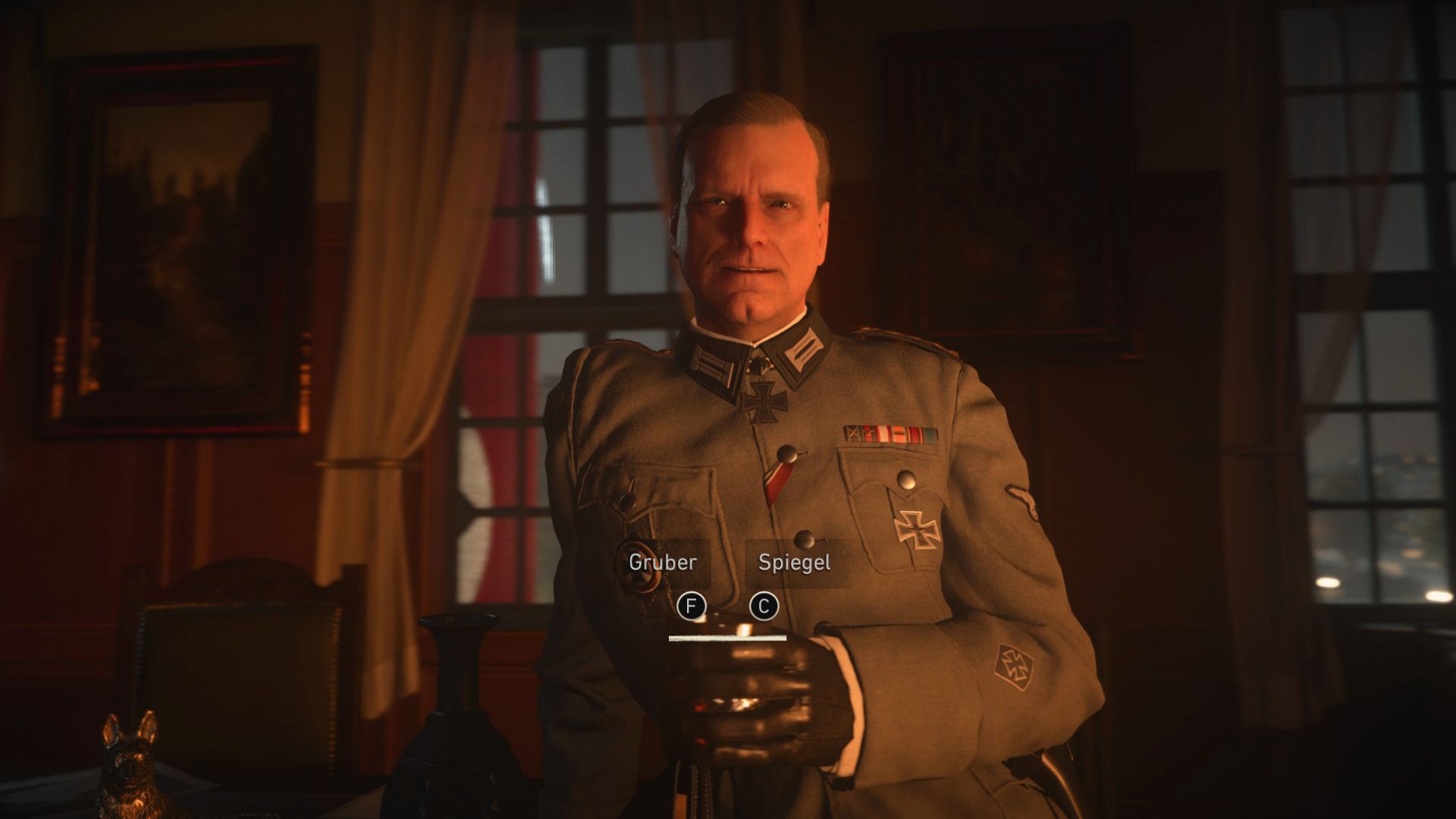
He gives a menacing speech with the Wolfenstein turned to 11, and asks who sent me. I get a few seconds to answer, but totally blow it. He confronts me, but I gouge him with a broken bottle during a quicktime event, a very classic Call of Duty moment, and book it out the window. I wonder what happens if you answer correctly? Honestly, I like not knowing.
From here, I need to circle the courtyard outside and plant two bombs without being spotted. Call of Duty's stealth isn't great, but the courtyard allows you to weave in and out of the building and climb up to a small ledge that rounds the perimeter. I'm fairly sure you can sneak directly through the courtyard too, if you're willing to put up with the wonky soldier AI. Now the choice isn't an illusion, it's real, even if it's still taking me to the same destination.
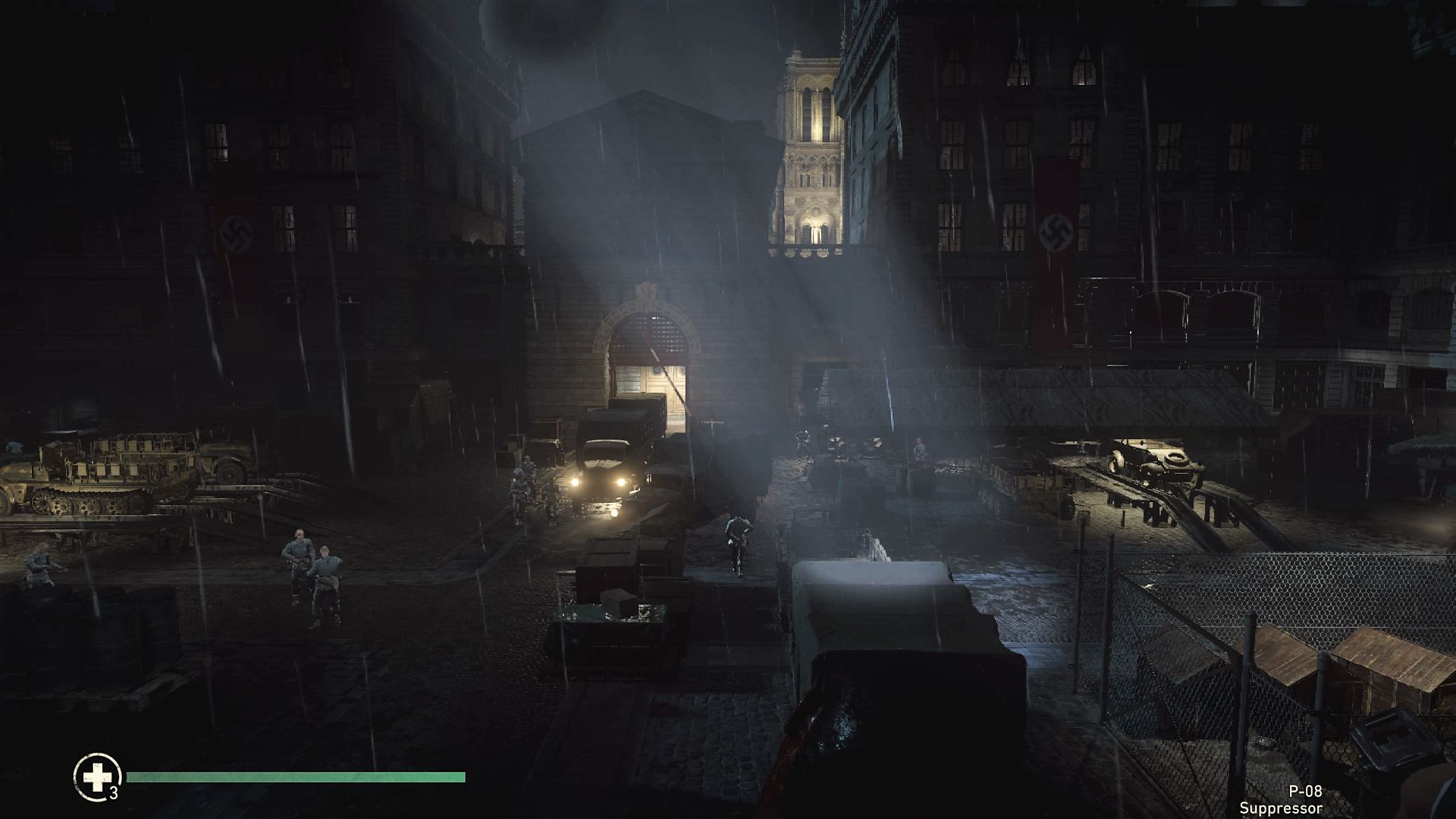
On my way to the second bomb, I hear my contact's strained voice. He's been caught and I can rescue him if I like. It would mean going out of my way, but how could I not? Call of Duty could still learn to lay off the massive objective markers dictating every other action, but the choice to rescue your contact is a fairly tasteful moral test despite the massive lettering letting you know it's an option. I'm not sure saving him gives you an advantage later on, but I dig that ambiguity. Save the guy who helped you. Or don't. Up to you, jerk/hero.
With two bombs planted, the perspective switches back to Daniels and company as they lead the assault to take and defend the Nazi base. We're back to shooting again, but with something to protect. I actually give a damn. Call of Duty earned its big, dumb action, and made it feel the tiniest bit more urgent than its typical slurry of soldier barks and violence tries for.
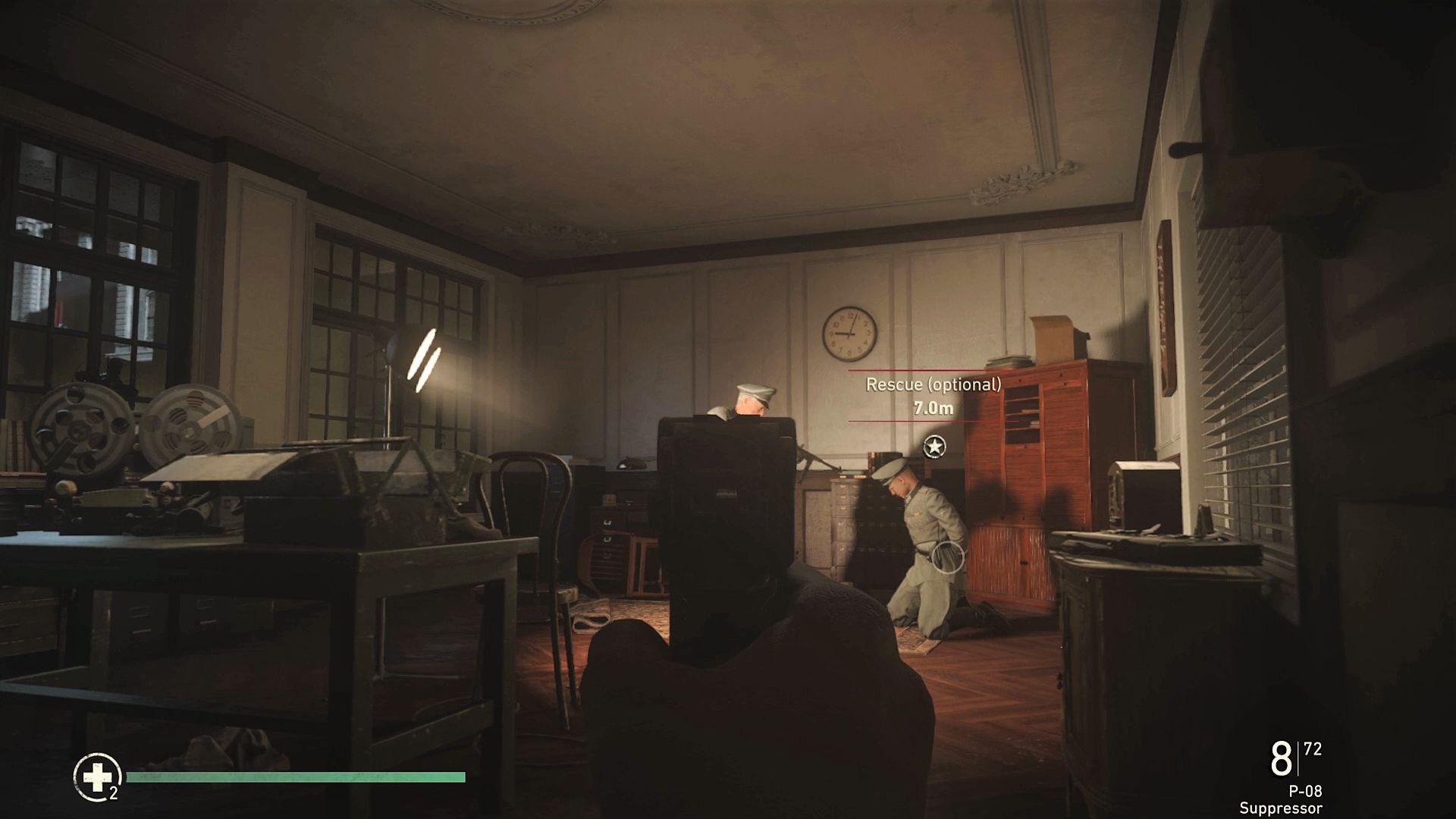
The ability to linger and examine a room, to chat up every grey-uniformed officer you see, to inspect the toilets, to make eyes with a man smoking a cigar in a dark corner—the ability to hide in plain sight is an inherent thrill in a series where you spend most of the time playing whack-a-Nazi crouched behind a hay bale.
Though they don't play the same, Liberation and Call of Duty 4's All Ghillied Up succeed because they're the rare Call of Duty missions built around patience. They're a clear sign that the Call of Duty format is capable of asking players to do more than just point and shoot, and examples of talented mission design that I really hope we see more of in next year's war game.
James is stuck in an endless loop, playing the Dark Souls games on repeat until Elden Ring and Silksong set him free. He's a truffle pig for indie horror and weird FPS games too, seeking out games that actively hurt to play. Otherwise he's wandering Austin, identifying mushrooms and doodling grackles.
